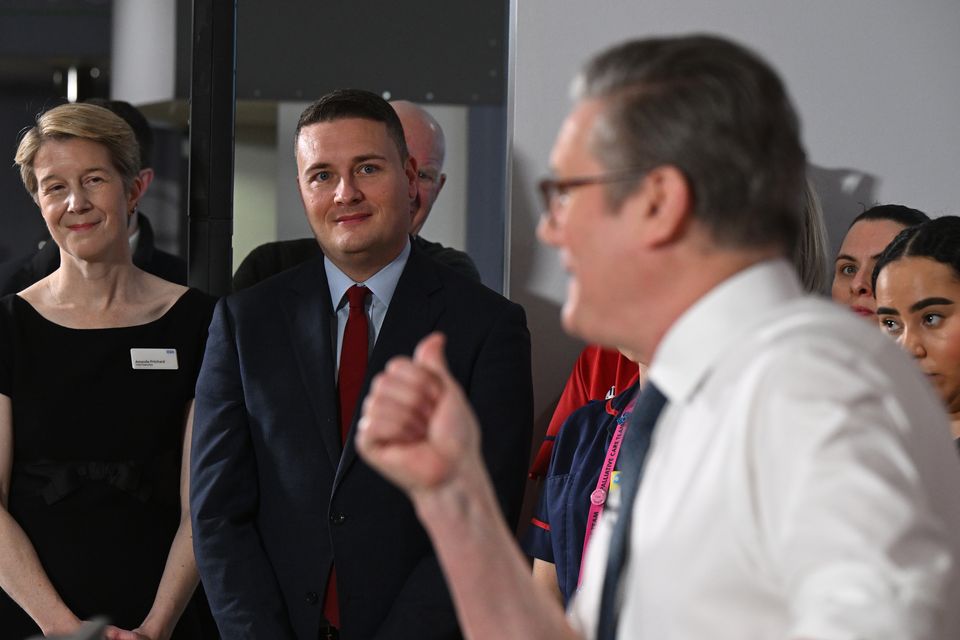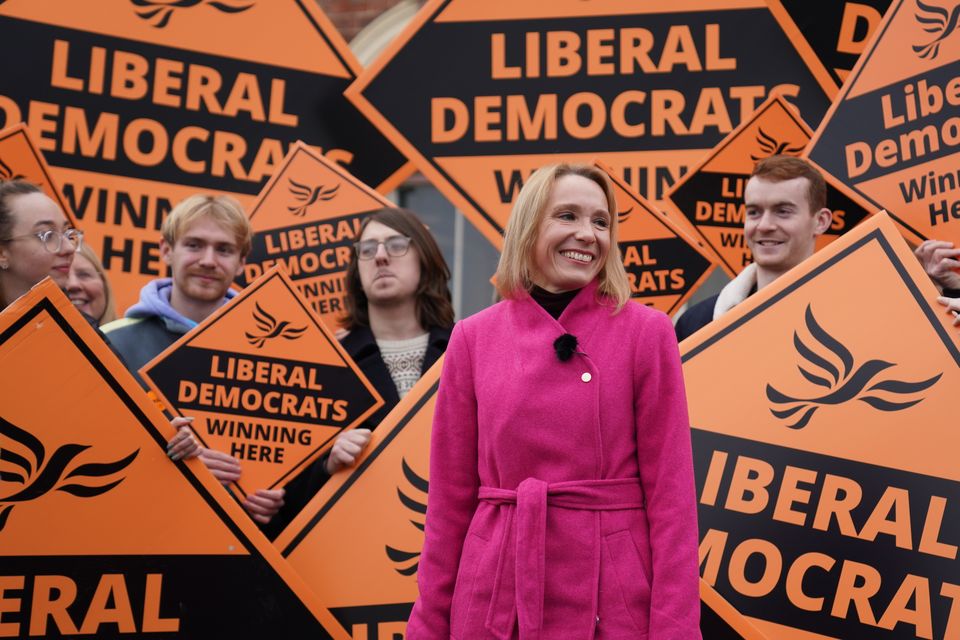Increased use of the NHS app will “free up the phone line” for older people who lack digital skills, Wes Streeting has said.
The Health Secretary was quizzed by Liberal Democrat health spokesperson Helen Morgan who raised the issue that elderly people are the most likely to need to access NHS services, but are also the least likely to have the internet access and digital skills required to do.
In plans published on Monday designed to slash the number of people waiting longer than 18 weeks for NHS treatment in England by nearly half a million over the next year, the Government will aim for 85% of acute NHS trusts to enable patients to view appointment information via the NHS app by the end of March this year.
The Reforming Elective Care for Patients document states that by March 2027, the NHS app will also be “significantly expanded to improve information for patients in elective care”, while the app and Manage Your Referral website will become the “default route” by which patients choose where they wish to be treated.
Health Secretary Wes Streeting (Leon Neal/PA)
During a statement on health and social care reform in the House of Commons, Ms Morgan said her North Shropshire constituency contains a “far more than average” number of elderly constituents, who are “the people most likely to need the NHS”.
She told MPs: “According to Age UK, around 29% of people aged 75 and over don’t use the internet and around a third don’t have a smartphone. They deserve as much choice and control as everybody else.
“So can the Secretary of State outline how those without access to the NHS app will be able to benefit from the same options and informations as those who do have access?”
In his reply, Mr Streeting said: “(Ms Morgan) talked about patient choice for those who are digitally disconnected or don’t want to organise their lives around their smartphones, that’s why I believe very strongly in choice – different courses for different horses.
“If I’m booking my appointments over the phone, that frees up the phone line for people who want to get through and would prefer to do their business and book their appointments over the phone.”
Liberal Democrat health spokesperson Helen Morgan (Jacob King/PA)
Elsewhere in the session, Conservative MP Sir Edward Leigh encouraged Mr Streeting to “tell the truth” to the public about the “sheer unaffordability” of adult social care, referring to the Dilnot Cap.
Last summer, Chancellor Rachel Reeves scrapped proposals from Sir Andrew Dilnot, whose findings had been accepted by the previous government.
The plan would have introduced an £86,000 cap on the amount an older or disabled person would have to pay towards their support at home or in care homes.
The Father of the House questioned whether MPs, including the previous Conservative government, have been “entirely honest with the public about the sheer unaffordability” of the Dilnot cap, as he urged the current Government to “start telling the truth”.
He said: “I wonder whether the Secretary of State thinks that we need a new social compact on bringing in social insurance so that people can plan for their entire life and they will know that they will have to pay more in taxes during their life for their old age, but they at least will have certain rights.”
Mr Streeting replied: “I think (Sir Edward) is right to say that we do need a debate as a country about the balance of financial contribution between the individual, the family, and the state.
“I well understand why David Cameron was so concerned about the issue of catastrophic care costs and people having to sell their homes and to pay for their care, and the problem he was trying to solve, but we’ve seen with every government since that issue is not seen as urgent as others.
“That doesn’t mean it doesn’t matter, and it doesn’t mean we shouldn’t consider it as part of the Casey commission, but we need to consider all of these issues in the round and as much as we can build a consensus, not just in this House but throughout the country, about the balance of financial contribution, what’s fair, what’s equitable, and what’s sustainable.”

